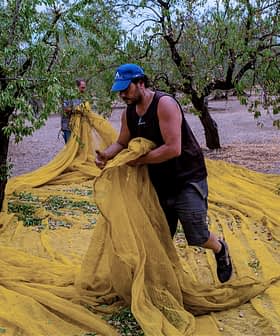European Conference on Xylella Fastidiosa: Finding Answers to a Global Problem
An event at the University of the Balearic Islands will provide a platform for in-depth discussion on the results of research into X. fastidiosa and its vectors, in support of on-going efforts to control the European outbreaks.
A major scientific conference on European research into Xylella fastidiosa will be held in Palma de Mallorca, Spain November 13 to 15.
The conference is being organised jointly by EFSA, the University of the Balearic Islands, the Euphresco network for phytosanitary research coordination and funding, the EU Horizon 2020 projects POnTE and XF-ACTORS, and the European Commission’s Directorate-General for Research and Innovation (DG RTD).
See Also:Articles on Xylella Fastidiosa
The event will provide a platform for in-depth discussion on the results of research into Xylella fastidiosa and its vectors, in support of on-going efforts to control the European outbreaks.
The event will provide a platform for in-depth discussion on the results of research into X. fastidiosa and its vectors, in support of ongoing efforts to control the European outbreaks.
As well as speakers and participants from Europe, the conference will be attended by scientific experts from other parts of the world — such as Brazil and the United States — where X. fastidiosa has been present for many years.
The recent detection of X. fastidiosa in Italy, France and Spain represents an important change in the geographical distribution of the dangerous plant pathogen, which now poses a serious threat to the agriculture and environment of Europe and the Mediterranean region.
This year’s conference follows the workshop Xylella fastidiosa: knowledge gaps and research priorities for the EU that was organised in 2015 by EFSA and the European Commission’s Directorates-General for Research and Innovation, Agriculture and Rural Development, and Health and Food Safety.
This scientific conference is dedicated to the presentation and discussion of results of European research projects on X. fastidiosa and its vectors. Priority for participation will be given to scientists already involved in research on X. fastidiosa, or who are embarking on new research into the topic. Risk assessors, risk managers and stakeholders will also be important contributors to the discussion.








